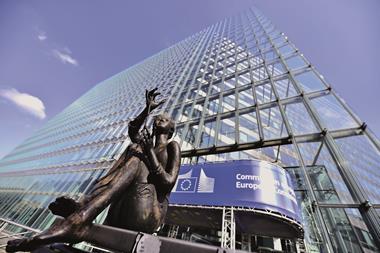NETHERLANDS - The €14.6bn Dutch pension fund of electronics giantPhilips has further dismantled its real estate portfolio, a processinitiated following an investigation started into the alleged realtyfraud within the fund.
Real estate fund Nieuwe Steen Investments (NSI) announced today it had bought eight "real estate objects" with an investment volume of €143m.
The rent income of the portfolio, a total of 73.000m2 of office and retail space in the Netherlands, is €11.2m, according to NSI.
Dela Vastgoed also today announced it has bought real estate off the Philips pension fund, with the purchase of the Rotterdam retail area Lijnbaan for an undisclosed amount.
At the end of last year, the pension scheme sold around 15% of its real estate holdings to Dutch real estate investment fund Vesteda for just over €200m.
This sale followed a tender procedure in early December in which Philips offered for sale a chunk of around 1500 residential housing spaces from its real estate portfolio.
Dela today said the Lijnbaan had not been part of this tender procedure in December, and only was put on the market this year. (See earlier IPE story: Philips scheme dismantles real estate portfolio)
This latest news also comes at the same time as various pension consultants are analysing the issue of the corporate sponsor's liability. Former officials of the fund are under investigation for fraud in relation to several real estate sales, and which are said to have cost the fund hundreds of millions of euros.
If Philips managers are shown to have part in the real estate fraud that cost the pension fund an estimated €100m, the electronics firm has the duty to pay for the damage, according to some experts.
Peter Kraneveld, former chief economist with the Dutch pension fund PGGM and currently adviser to the American class action litigation firm Schiffrin Barroway Topaz & Kessler (SBTK), told IPE: "Risk or, even better, risk management includes good procedures and controls. When one or more rogue traders go awry, their employer has a problem, whether it's Barings, SocGen or the Philips pension fund."
He believes pension funds are getting more and more involved in class action suits to recover fraud for the sake of the beneficiaries, because they see it astheir fiduciary duty.
"Now that the focus is on one [pension fund], it is no different. They have the same responsibility to do everything to prevent fraud as everyone else. Again, that's not for their own sake, but for the sake of the beneficiaries," argued Kraneveld.
Pension expert Alfred Kool, previously head of corporate communication at giant Dutch pension fund PGGM also commented: "I can imagine that Philips, partly under pressure from public opinion, will compensate the damages voluntarily."
He added: "The difficult thing is that for the average newspaper reader enormous amounts (millions) are involved, but in terms of influence on cover ratios and pension premium of this large fund there will be no noticeable effect. So while there is from an actuarial ponit of view, in my opinion, there is no necessity to compensate, hence the focus will be mainly on the fraud and the criminal proceedings that will follow."
Albert van Marwijk Kooy, pension law partner at the Amsterdam-based law firm Van Doorne, and his colleague Maja Maric argue the Philips pension fund is a separate legal entity with its own responsibilities.
"Under the Dutch Pensions Act, a pension fund is allowed to outsource certain tasks (such as management of the real estate portfolio) to a third party. The third party may be an entity falling within the same group as the pension fund," outlines Van Marwijk Kooy.
From the Dutch legal perspective perspective, the pension fund therefore remains responsible for its outsourced tasks, he argued.
Philips is not a party in the outsourcing agreement between the pension fund and Philips Real Estate Investment Management (PREIM): "The mere fact that PREIM falls within the Philips group does not mean Philips can be held automatically liable for how PREIM performs its assignment under the outsourcing agreement," said the law firm.












